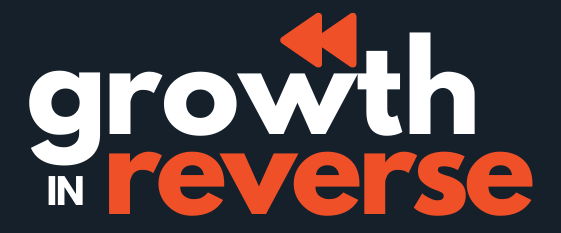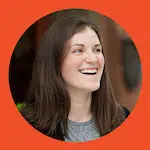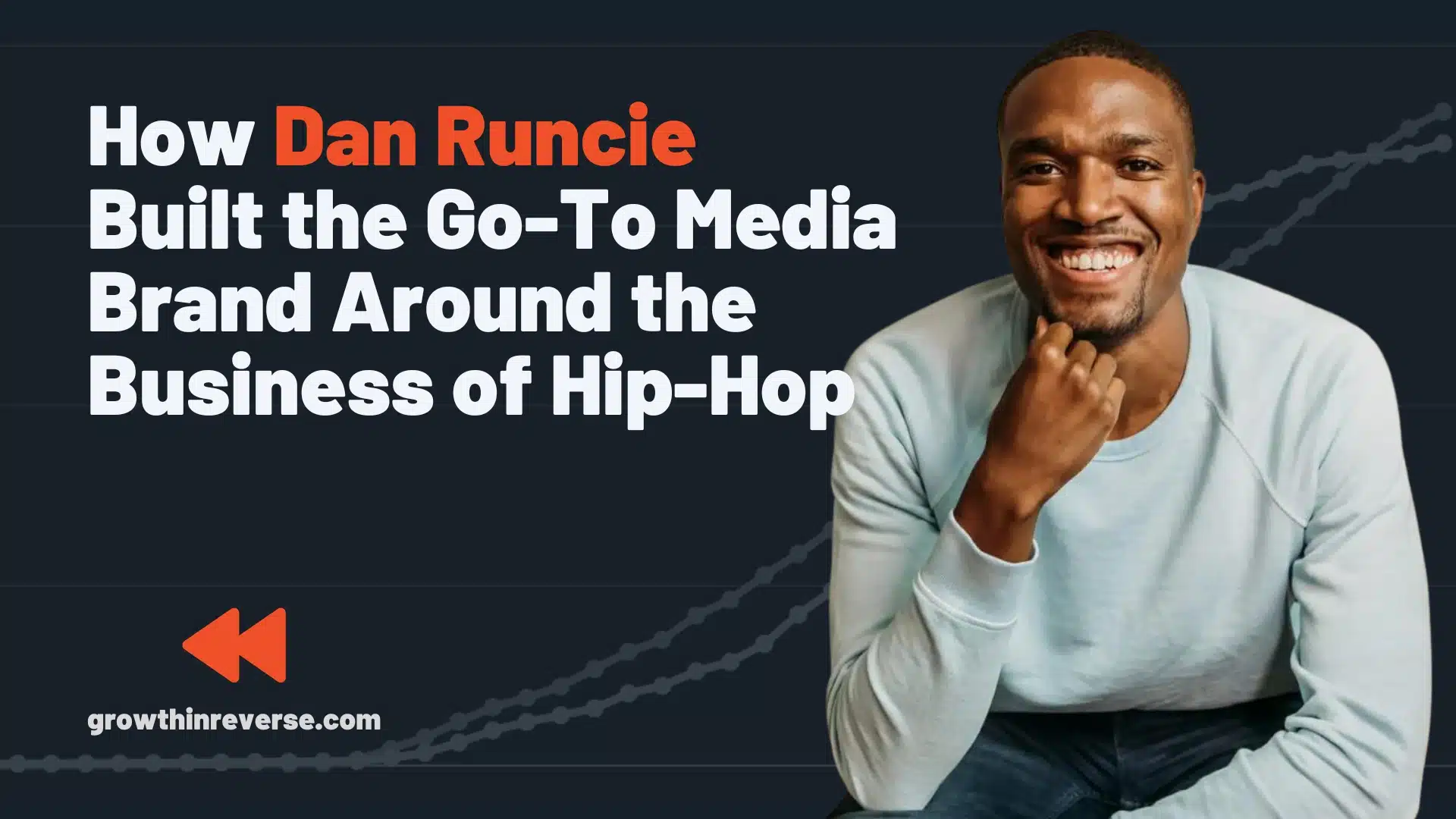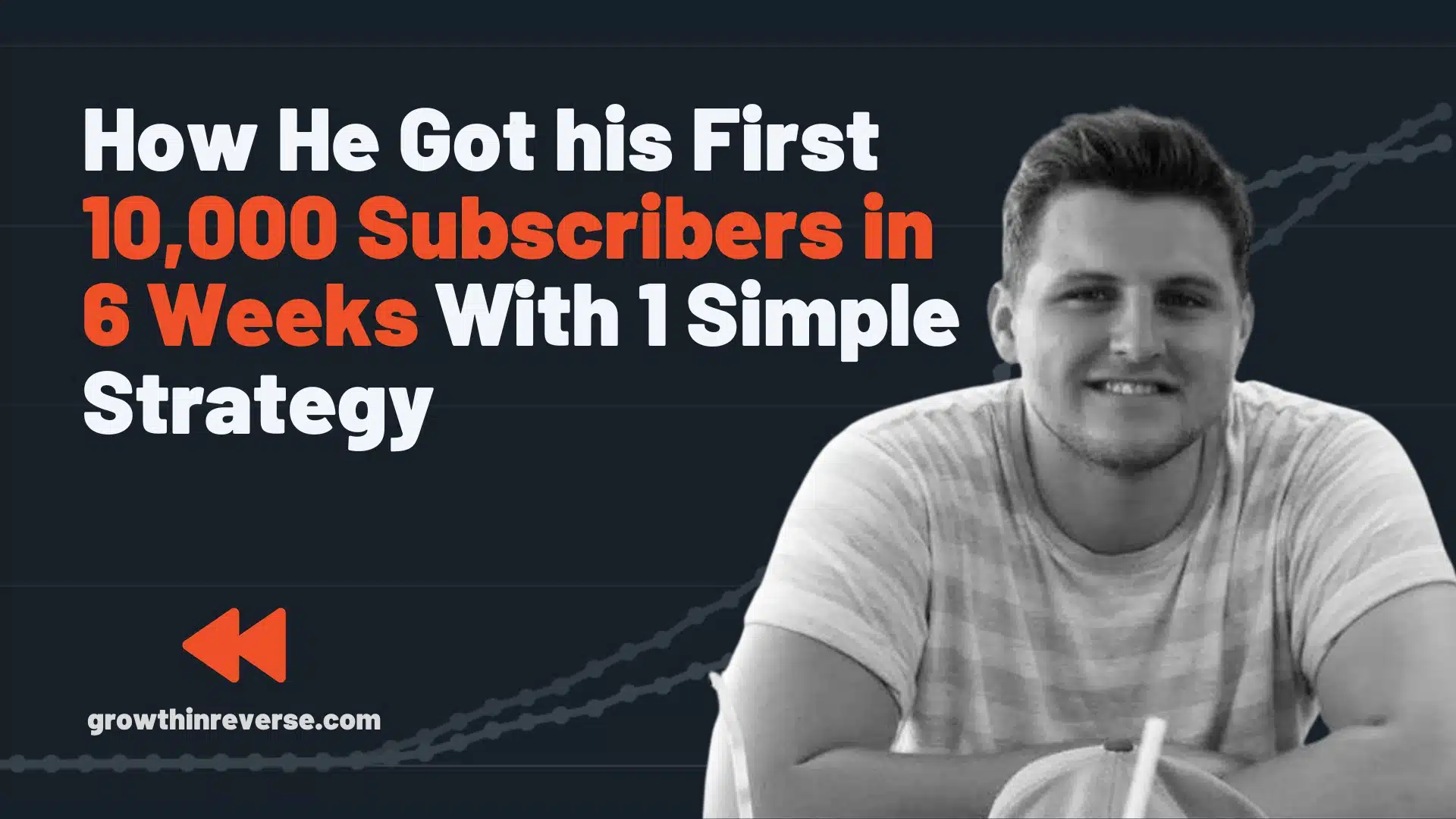Ben Collins began his career as a forensic data scientist, and now he makes six figures a year selling courses about Google Sheets.
What the heck is a forensic data scientist?

From what I gather, Ben was responsible for finding mistakes in a company’s books and financial statements – and figuring out how fraud occurred.
That’s not the main point. The main point is that Ben knows his way around data, and it’s a reason he’s been able to teach thousands of others how to get better with it as well.
With over 50k subscribers and multiple six figures earned, he’s turning his skill into a full-time creator business that allows him to spend a lot more time with family.
How Ben Makes Money
Ben has had a few income sources over the years, but at this point, a majority of his income comes from his digital courses.
Digital Courses
He has courses teaching you everything from how to use the Apps Script (if you want to get super nerdy with data).
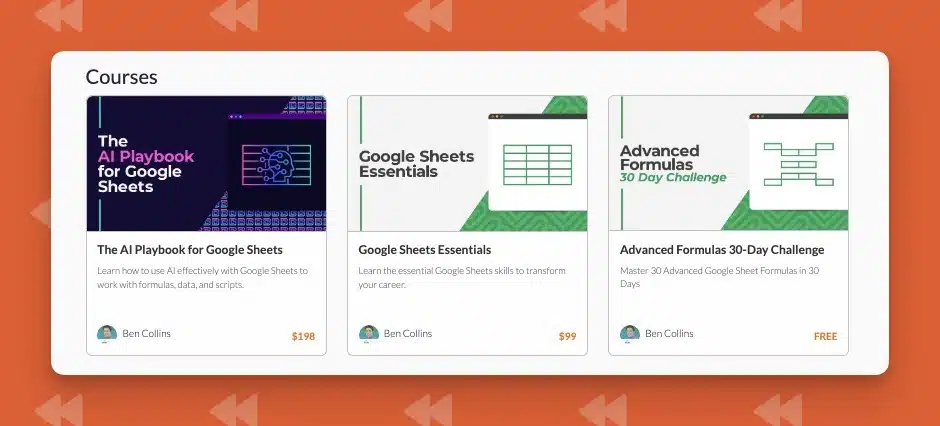
There are 12 courses in total, ranging from the AI Playbook for Google Sheets, to how to build a dashboard in Google Sheets.
The premium courses range from $99 to $199, or you can purchase multiples as a bundle and save some money.

I found this little quote in one of Ben’s articles, and I am super curious if these 40k students include the free ones.

Because if not, even if they all bought his cheapest $97 course, that’s almost $4 million from self-paced courses alone.
As a side note, Ben is currently running a Black Friday deal for all of his courses. As you’re going through this, if any of these interest you (and I have a feeling they might), you can save 40% through 11/27.
📌 All of Ben's Google Sheets courses (and bundles!) are 40% off this weekend.
Use Code BLACKFRIDAY23 through 11/27 for 40% off
Cohort-Based Courses
He also ran a cohort-based course called Pro Sheets Accelerator in 2021 that helped students take their base level of Google Sheets knowledge and turn it into a more robust skillset.
He ran two cohorts of the course: the first had 37 students and the second had 42 students.

At $1,595 per person, that’s over $120k of revenue from those two cohorts alone.
Note: the first cohort may have been a little cheaper, but I couldn’t find the rates for that one.
Lead Generation
This is a new one from what we’ve seen in past deep dives.
Ben used to do consulting to build Google Sheets and API Scripts for companies, but no longer does this.
But that doesn’t mean the pipeline of clients wanting to work with him has dried up. Instead of taking on more consulting clients these days, he refers those people to a friend who runs an agency.
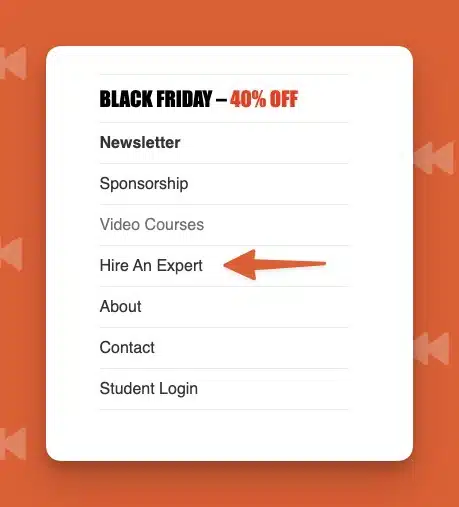
The “Hire an Expert” option in his sidebar leads to a Google Form that you fill out with what you’re looking for.
These leads end up getting redirected to someone who can (and wants to!) help.
I have to imagine that since Ben is giving that company free leads, he probably gets some kind of commission for doing so.
Affiliate Marketing
There are some affiliate links on Ben’s website, but it’s very few and far between. I did want to include it as a small portion of income, but it doesn’t seem to be a huge focus of his.
The Growth Timeline
Ben’s growth trajectory was pretty consistent for a while and then hit a plateau.

Ben has found something his audience wants to learn about and he just consistently creates content for them year after year.
Could he have grown faster? Yes.
But he’s done it in a way that allows him to spend time with his family and go mountain biking regularly. He’s focused more on happiness in life than just growing for the sake of it. I love that.
While his growth has slowed quite a bit, there is a lot we can learn from the way Ben has been able to build his business and keep the money coming in even through those “plateaus.”
The Growth Levers
Here are some of the ways Ben has been able to grow his audience over the years:
1. Niche vs Broad. Instead of writing about all kinds of software tutorials, he’s honed in on one specific area of focus. And this makes a lot of his next steps much easier.
2. SEO/Organic Search. Ben has brought in a ton of website traffic from Google searches. This strategy is responsible for a lot of his success, but it’s something many creators avoid.
3. YouTube for non-YouTubers. Ben isn’t a professional YouTuber, but his videos have driven tons of traffic and views to his content.
4. SheetsCon. The virtual event that drove thousands of subscribers to Ben’s email list. And over $20k in potential revenue.
5. Free courses. Ben has done a masterful job at getting his readers and subscribers to convert into paid customers. His free courses and lead magnets are a big key to that.
1. Going Niche vs Broad
When Ben began his current website, he was writing about all kinds of software. He talked about Microsoft Excel and Microsoft Visual Basic – essentially everything was fair game.
But once he decided to go “all in” on Google Sheets, everything changed.
In April 2018, he launched the current iteration of his newsletter, sharing one Google Sheets tip each week.
People began to look for his content when they had a question about the software.
Becoming established in a niche helps in a bunch of areas:
- People think of you as the “Google Sheets” guy
- It makes it easy for others to refer clients and readers to you
- Your content creation is much more focused
- It makes it easier to know what paid products to create next
This also lets him lean really hard into the niche, and add relevant subject lines for his emails – like this one from a few days ago:

It’s super nerdy but his audience will relate to it.
Hyperfocus Makes Creation Easier
There are a lot of positives to niching down, but I personally think the most compelling is that it’s just easier to serve your audience.
At the beginning of any project, I think the most important thing is your ability to stay focused and consistent.
When your audience follows you for a very specific topic, it’s going to be much easier to keep yourself focused on that one thing instead of trying to add more and more ideas to your content calendar.
Over time, you can expand what you talk about (if you want), but when you’re starting out it’s easier to gain traction for something specific than for trying to be someone who talks about whatever they feel like that day.
We might look at a bigger creator like Sahil Bloom with over 600k subscribers today and think the opposite.
He is pretty wide open with what he talks about now, but in the beginning, he was very focused on creating finance-based content.
Over time, he broadened his scope, but he was very focused at the start of his creator journey.
The other thing that being focused on a single topic helps you do?
Rank well on Google and other search engines.
2. Organic Search
Because Ben’s website is about Google Sheets and related topics, Google itself has a better idea of what his area of expertise is.
This makes it easier for him to rank for specific search queries on Google.
Google search traffic can be a little hard to rely on because it can fluctuate quite a bit. Here is the estimated traffic Ben has been able to get from search engines over the years:

When people in his industry link out to his website? They’re mentioning Google Sheets, giving Google even more context and confidence that he is an expert on that topic.
The result? He ranks on the first page for a ton of keywords related to his topic – which can eventually lead to course sales.

Over time, this traffic can go up or down depending on a ton of factors, including competition, algorithm updates, and the invention of ChatGPT.
And while this traffic is still important, these fluctuations really highlight the importance of moving people to your own platform (i.e. newsletter) – which Ben has done quite well.
3. YouTube Channel
Ben also takes advantage of the search functionality on YouTube, putting out tutorials and other videos on his channel.
Since YouTube is one of the top search engines in the world, by creating videos of some of his tutorials, he’s able to capitalize on that traffic.
Ben is not an expert YouTuber by any stretch (sorry, Ben!).
- He doesn’t have great thumbnails
- He doesn’t pump out content on YouTube every week
- He doesn’t have a ton of subscribers (only 8.7k at this point)
- The audio quality isn’t always great
The best part? The content itself is something people clearly want.
Some of his videos have hundreds of thousands of views.

He creates videos when he feels it’s necessary to really amplify the written content he’s creating.
Because he’s embedding these videos into the articles he’s writing, he is adding views to those videos, which can help even more when people find him in a YouTube search.
4. SheetsCon
Ben put on a virtual event in 2020 called SheetsCon.
Ben did a great job promoting this event and ended up with over 6,750 registered attendees!
3,800 of whom actually showed up live to watch a live session.
While SheetsCon was free, Ben found sponsors for the event to help him make up for the costs of running it and his time.

These sponsors also helped promote the event on their social channels and their own email lists.
I also found this post where Ben shared the event on Reddit in the r/sheets community:

Between that, and Ben promoting it on Twitter, Reddit, and through his email list, he was able to get a ton of people registered.
But the craziest part is that was kind of all the promotion he did. It wasn’t like he had a huge marketing campaign behind it, and yet he was able to get over 5700 people to sign up.
While Ben admits he didn’t make much direct money from this, he did end up with a ton of new relationships and said “it certainly raised my profile within the G Suite and Google Sheets communities.”
The 3,500 or so email subscribers he got could also turn into course sales down the road:

This doesn’t take into account the extra subscribers he’ll end up seeing from these new relationships with vendors that he’s built.
All of the recordings are still up on his website as something you can get as a “lead magnet”, more like a free course.
5. Free Courses Leading to Paid Ones
In 2017, Ben created an eBook called “Spice Up Your Sheets Life” that he started giving away to new subscribers.

It worked pretty well for a while, converting over 2,500 people onto his email list that year alone.
But after a while, it stopped proving to be as effective. He still gives that away to people who sign up for the newsletter, but there is also another type of lead magnet he’s trying out.
Free Courses
Ben had been following a guy named Wes Bos who taught Javascript and shared tutorials with his audience. He noticed that Wes was running a free 30-day course around coding with JavaScript.
Ben thought this was crazy at first – creating an entire video course to give away for free??
But then he found out that Wes was adding tens of thousands of people to his email list from that free course.
This course was helping people learn how to better use Javascript, but it was also a great lead-in to his paid courses.

Ben decided to do the same thing.
He created a 30-Day Challenge around Advanced Google Sheets formulas and launched it in December 2017.
That course/challenge had a pretty big impact on his email list, resulting in it growing to around 30,000 subscribers by mid-2020.
Ben is building up so much trust with his readers by giving away that much free content. Plus, you’re spending a lot of time with his content – 30 days is no joke.
Once you get that much free value from Ben, it’s going to be hard to look anywhere else when you want to learn something he has a paid course about.
6. Specific Paid Courses
For a while, Ben was doing consulting, and not making a ton of money from the email list and website itself.
But he had thought a lot about making a course about Google Sheets. Eventually, he decided to give it a go.
I committed to creating a Google Sheets course. Just one. I would give it a try and see what happened.
If it was successful, then I could do it again. If not, then no problem, I could keep going with my freelance consulting.
Ben Collins
The first course he created was one around building dashboards in Google Sheets. He had created some free posts around the topic that got a great response from his audience, so he knew that would be a good topic to start with.
He made over $7,000 from an email list of just 2,000 people with that one course.
The course sold for $149, meaning he converted around 2% of his email list into buyers with that first course.
From there, he was off to the races. That was enough to give him the confidence to create another one.
He quickly got started on his next course, a Data Cleaning course, which is now part of his Data Analysis course.
He finished that one in 2 months and was now “making a modest salary from my business.”
Since then, Ben has created more than 15 digital courses.

Each one covers a very specific topic (he’s even niching down with his courses!), allowing his audience to pick and choose which information they want to pay for vs. just buying an “all in one” course.
Side note: Ben is offering 40% off Black Friday with code BLACKFRIDAY23 until 11/27.
How You Can Replicate Ben’s Success
I really enjoyed Ben’s story, because it’s a much more sustainable path than many other creators featured. There’s no epic growth story, hundreds of thousands of social followers, or even paid ads.
Just consistent growth over years while staying focused on one thing.
Here are some of the ways you can replicate the success he’s had.
Niche Down in the Beginning
Ben started off writing tutorials for a bunch of different software. But it wasn’t until he focused only on Google Sheets that his growth really started to take off.
When you become established in a niche you can broaden out from there but if you start broad it can be hard to find traction.
By giving your readers and other creators a very specific thing you want to be known for, it makes it much easier for them to share with friends and help you gain traction.
Growing a topic-focused audience will help you learn a lot of marketing and creator skills you can eventually translate into a more personal brand if you want.
Create Free Courses
A good bit of Ben’s email growth has been from creating free resources that get people to sign up for his email list.
One of the keys to this strategy is to make sure you’re consistently cleaning your email list of people who aren’t engaging.
Since a lot of folks might sign up just for that freebie, you want to make sure you’re purging your list of those people and keeping only the ones who want to get your content regularly.
If you have paid courses, giving them a taste of what your teaching style is like and how much value they might get is a great way to transition them into paying customers.
Sure, a lot of people won’t ever buy from you, but they still might enjoy being on your email list. So even if you end up with a few thousand extra subscribers, I’d venture to guess that creating a free course ends up being worth it.
Don’t Forget About Organic Search
While it gets a bad rap, Ben has seen growth and a ton of traffic from people searching on Google and YouTube.
With the creation of ChatGPT, it can be easy to just write off organic search because it’s too volatile.
But I’d argue social media is even more volatile.
And if you’re ranking on Google for something, it’s got much more staying power than a single tweet or post on LinkedIn.
You can get traffic from Google for years, while a single tweet probably won’t have that same effect.
Build assets for your business, instead of just one-off promotional tweets.
